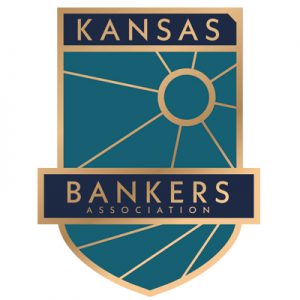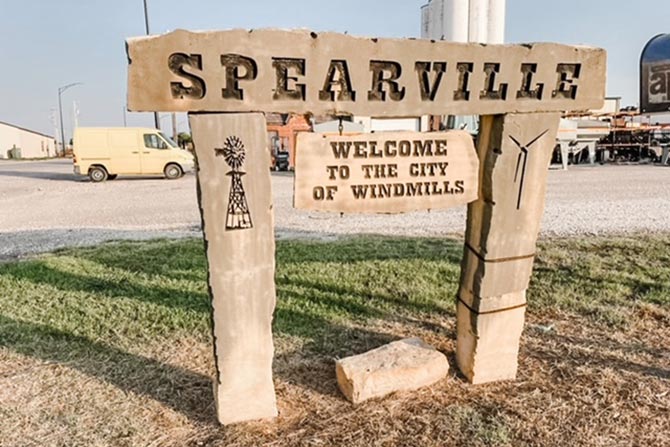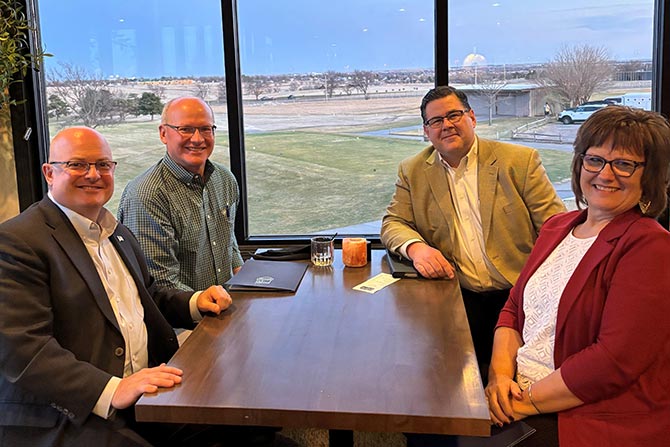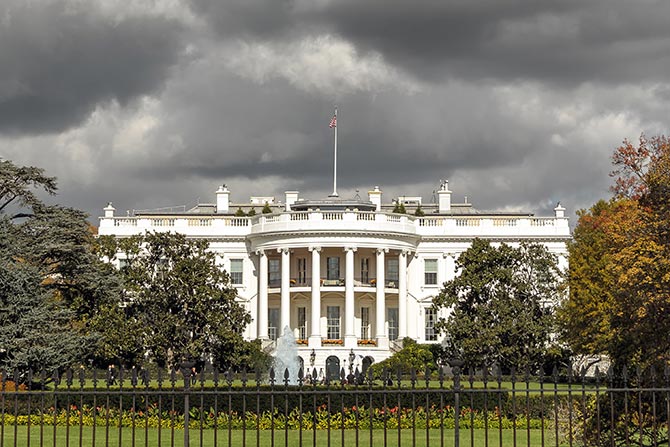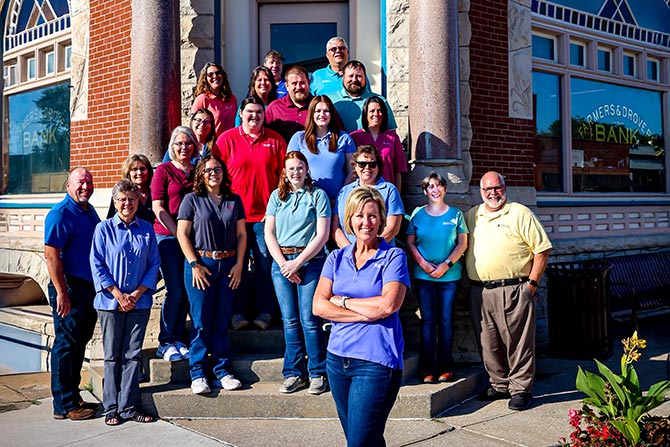For over five decades, Tena Gleason and Kevin Stein have shared more than a zip code. Growing up in Spearville, Kansas, these two lifelong friends have not only witnessed their hometown evolve, but they have also helped to shape it through parallel careers in community banking. Today, they work just steps from each other — at banks located directly across the street — proving that mutual respect and a shared commitment to community can bridge even the most literal divides. Though technically competitors, their relationship has been anything but. Built on trust, shared values and deep rural roots, their story reflects the true heart of community banking.
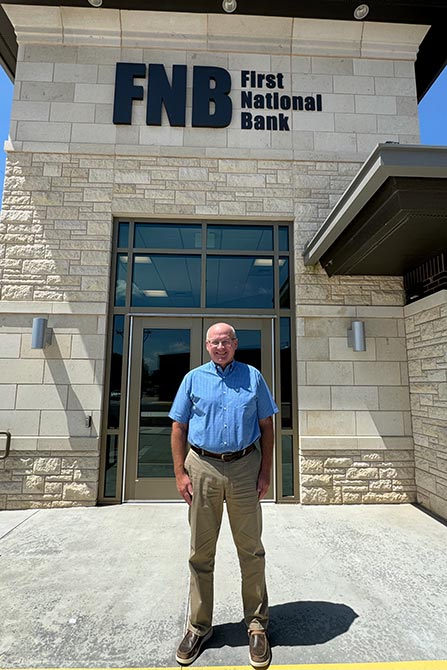
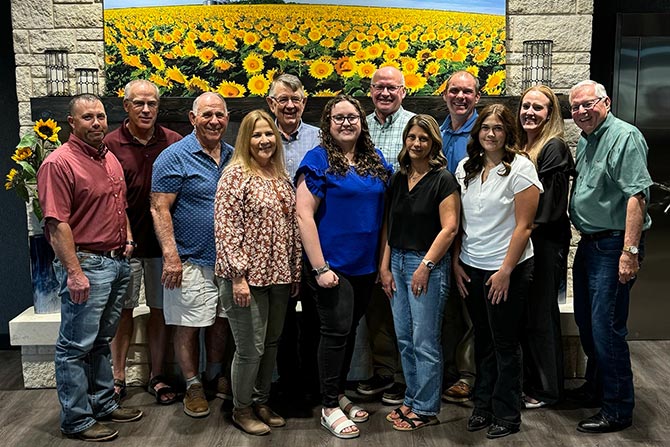
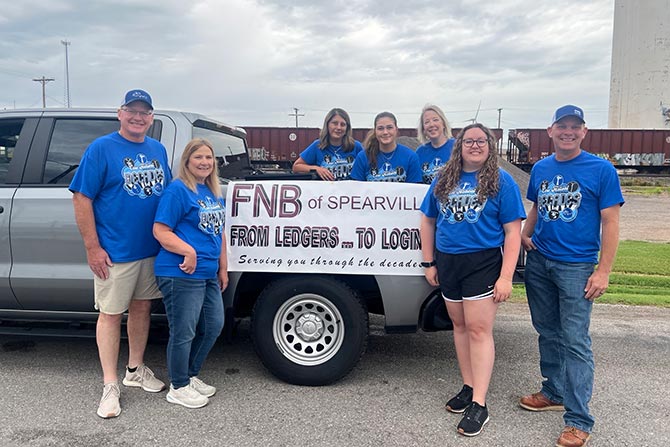
Q&A with Kevin Stein
Senior Vice President, First National Bank of Spearville, Spearville
How did you and Tena meet, and what’s helped your friendship last so long?
We’ve known each other our whole lives. Both of us are from Spearville. We grew up here, and I’ve watched Tena and her family grow over the years. I think what’s helped our friendship endure — despite working for different banks — is our mutual love for this town. We both understand that healthy banks mean a thriving community, and that’s always been bigger than competition.
Describe Tena in one word.
Loyal. But also, she has integrity and she’s trustworthy. She’s someone you can count on.
How would you describe Spearville’s financial landscape?
Spearville is small — around 800 people. Agriculture is the backbone: Cattle feeding and wheat/milo production are mainstays. In recent years, renewable energy has become a big part of the picture with 350+ wind turbines in the area. We’re just 17 miles from Dodge City, so many folks work there and live in Spearville for the small-town life.
What is the biggest challenge you face in banking today?
Navigating the line between neighbor and banker. Everyone is someone you know personally, which builds trust but also makes tough decisions — like denying a loan — more delicate. You’ve got to balance empathy with responsibility.
What is the biggest shift you’ve seen in banking?
Technology and regulation. It used to be all handshakes and passbooks. Now, even in rural markets, customers expect digital banking and fast service — plus tight cybersecurity. At the same time, regulations have made operations more complex.
How do your banks contribute differently to the community — and where do you see overlap or shared values?
The only difference that I am aware of is that FNB has a crop insurance agency within the bank. Both banks are small, independent, privately owned institutions that are deeply embedded in the community and have strong relationships with their customers.
How do you mentor the next generation?
By being accessible. I try to share the “why” behind decisions, encourage curiosity and give younger team members real opportunities, just like someone once did for me.
If you could collaborate with Tena on a town project, what would it be?
I’d love to bring more small businesses to Main Street — and work on affordable housing for teachers and tradespeople who want to live in Spearville but commute to Dodge City.
How do you want to be remembered?
As someone who put people first. I hope I’m seen as a good neighbor and a steady hand — someone who built relationships, not just transactions.
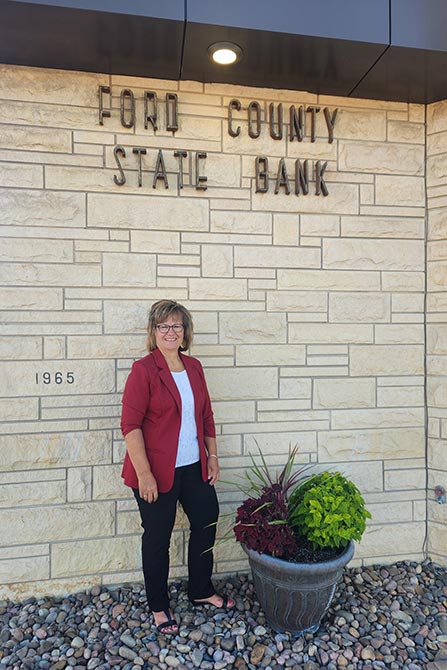
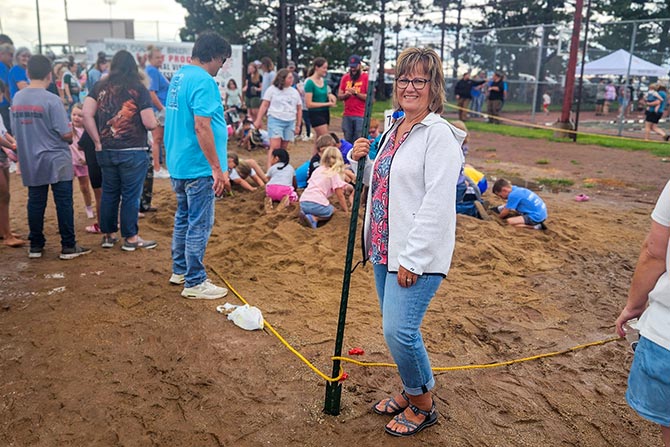
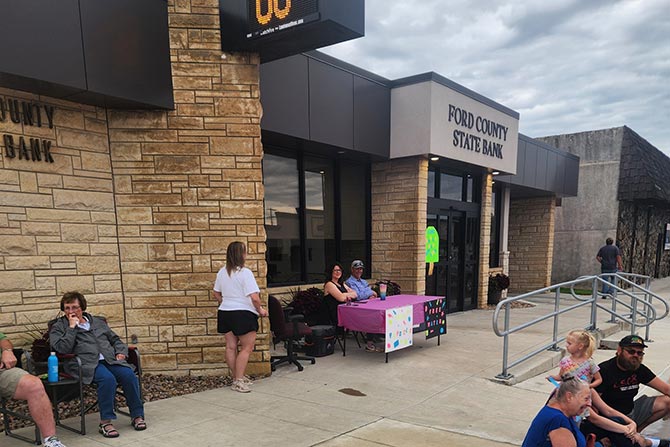
Q&A with Tena Gleason
President, Ford County State Bank, Spearville
How did you and Kevin meet, and what’s helped your friendship last so long?
Kevin and I are both hometown kids. We grew up in Spearville and have known each other for most of our lives. Our friendship didn’t start at a specific moment; it was simply always there. Over the years, we’ve worked just across the street from each other, and I think it’s our personalities — and the mutual respect we have — that’s made our friendship last all this time, even while working at different banks.
Describe Kevin in one word.
Professional. He’s also courteous and sincere. Kevin brings a calm presence to every conversation, and that consistency builds trust — not just with customers, but also with peers.
How would you describe Spearville’s financial landscape?
It’s a diverse mix, but agriculture is definitely dominant. We’re a rural town of about 800 people, and agriculture is the heart of the local economy — whether that’s cattle feeding or crop production. There’s also been a strong boost from renewable energy in recent years, thanks to the surrounding wind farms.
What local economic trend has had the biggest impact on your day-to-day work recently?
The rising cost of agricultural production. Input costs — everything from seed and fuel to equipment and interest rates — have been climbing steadily, and that impacts not only our customers’ bottom lines but the kinds of conversations we’re having in the bank every day.
How do your banks contribute differently to the community, and where do you see overlap or shared values?
Both of our banks are deeply committed to the community. We support everything from the local school and church to youth programs and events. At Ford County State Bank, we’re also proud to serve as a trustee for the Joe C. Nielsen Scholarship Fund, which awards scholarships to graduating seniors. We manage a charitable foundation established by Tom Feist, our former majority stockholder, which donates nearly $1 million annually to local nonprofit projects. That’s a legacy we’re honored to carry forward. At the end of the day, Kevin’s bank and ours may have some differences in services, but we share the same core values: service, trust and giving back to Spearville.
Have there ever been moments where you found yourselves on opposite sides of a deal or client situation? How did you handle it?
Yes, and when it happens, we handle it the way professionals should — with respect. There’s no room for ego in small-town banking. We know the importance of maintaining relationships, and that includes with each other.
Do you ever bounce ideas or challenges off each other, even though you technically work for competitors?
Not too often, but when we talk shop, it’s always helpful. There’s value in having someone across the street who understands what you’re facing and respects the work you do, even if you’re not on the same payroll.
What’s the biggest change you’ve seen in the industry since you started?
Regulation. There’s no question that the regulatory footprint has grown dramatically since I started in 1980. Everything from compliance to reporting has become more complex and time-consuming, even for small community banks like ours. That’s a big shift from when decisions were more local and flexible.
Do you plan to retire soon?
It’s on the horizon, but I haven’t made any final decisions yet. Kevin talks about traveling and seeing his grandkids — he may beat me to it!
Favorite shared memory?
There are too many to count, but we laugh a lot, remembering our high school days and seeing our careers come full circle, now just across the street from one another.



